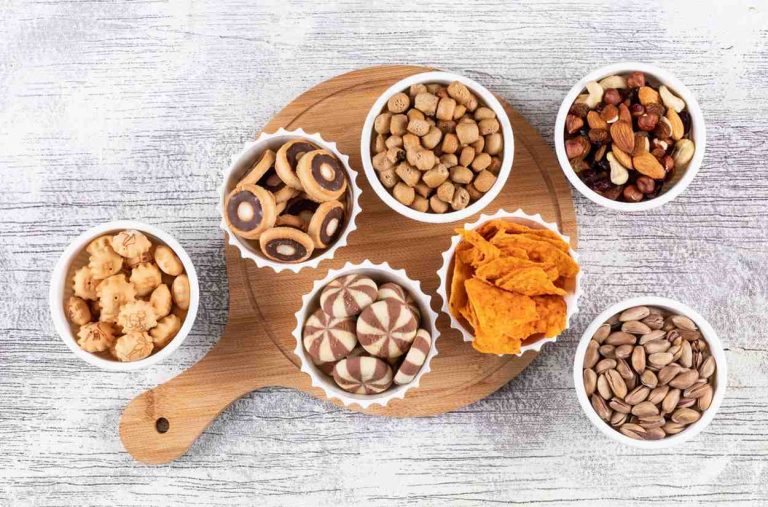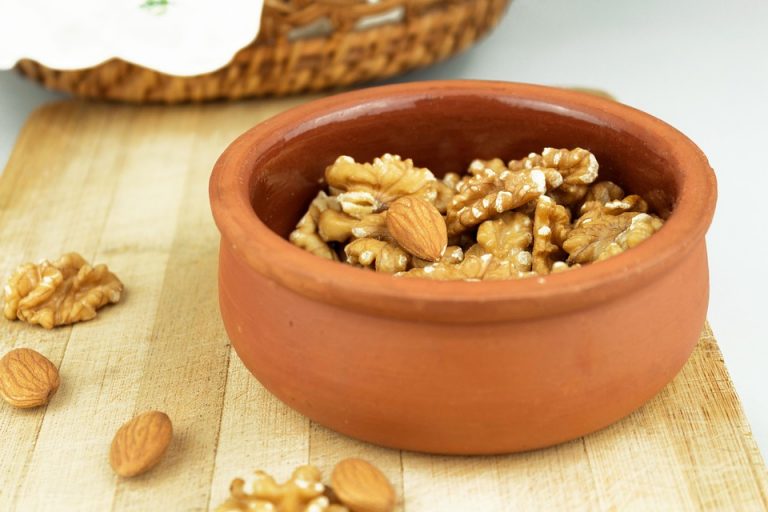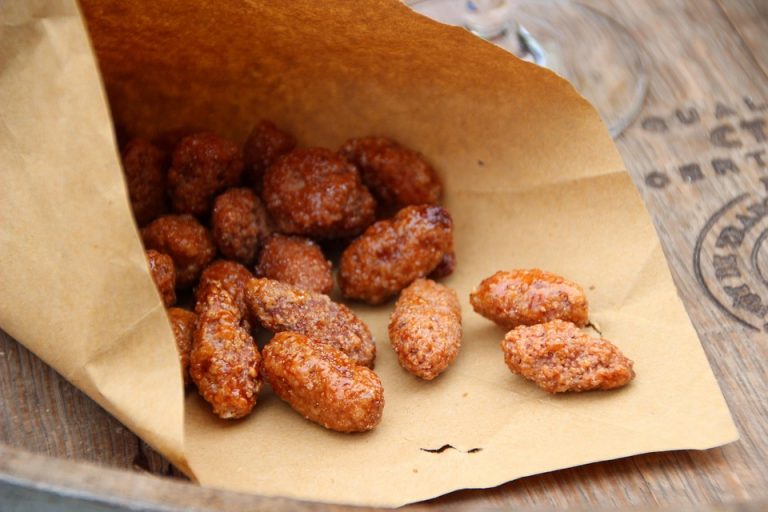Midday slump meets your favorite mug. For many of us, a warm beverage in hand can feel like a comforting ritual. Now, what if I told you that a dessert favorite—prunes—could provide much more than just a sweet end to your meal? Surprisingly, prunes have garnered attention for their health benefits, particularly when it comes to bone density.
With the rise of osteoporosis concerns, especially among aging populations, many are on the lookout for natural ways to fortify their bones. Let’s explore five surprising benefits of prunes for bone density, backed by recent studies that shine a light on this unexpected superfood.
Contents
1. Rich Source of Nutrients Essential for Bone Health
Prunes are not just dried plums; they’re packed with important nutrients. They contain substantial amounts of potassium, magnesium, and vitamin K. These nutrients are crucial for maintaining bone mineral density.
Nutritional Profile
A serving of prunes (about 28 grams or 4-5 prunes) contains approximately:
- Potassium: 290 mg
- Magnesium: 14 mg
- Vitamin K: 0.17 mg
Research indicates that potassium helps neutralize metabolic acids that can leach calcium from bones, while magnesium aids in the structural development of bones. Vitamin K plays a vital role in calcium metabolism and bone health, enhancing the effectiveness of other nutrients in promoting bone density.
Peer-Reviewed Evidence
A 2020 study published in the Journal of Nutrition found that diets high in potassium and magnesium positively correlate with increased bone mineral density among older adults (Hui, 2020) [1]. Including prunes in your diet may be an easy and delicious way to up your intake of these essential nutrients.
2. Antioxidant Properties That Combat Bone Loss
Prunes are loaded with antioxidants, particularly phenolic compounds. These compounds help to prevent oxidative stress, a major contributor to bone loss.
Bone Health and Oxidative Stress
Oxidative stress involves an imbalance between free radicals and antioxidants in the body. This imbalance can lead to cellular damage, affecting not just skin and heart health but also impacting bones.
A study published in Clinical Interventions in Aging emphasizes that prunes’ antioxidants can help mitigate oxidative stress, reducing the risk of osteoporosis and bone fractures (Rao, 2021) [2]. By consuming prunes, you’re essentially providing your bones with a shield against the harmful effects of free radicals.
3. Hormonal Balance and Improved Calcium Absorption
Prunes play a role in hormonal balance, particularly concerning estrogen. Estrogen is essential for maintaining bone density, and its decline during menopause is a significant factor in osteoporosis risk.
The Estrogen Connection
Prunes may aid in the modulation of hormone levels. Animal studies have shown that a diet rich in prunes can positively affect bone health by influencing estrogen levels, making them a beneficial addition for postmenopausal women.
In a 2018 study found in Menopause, a group of postmenopausal women who consumed prunes regularly showed an increase in bone density compared to those who did not (Sung, 2018) [3]. And while this research is promising, it should be noted that individual hormonal responses can vary widely.
4. Improving Gut Health and Nutrient Absorption
Have you ever noticed that when your gut feels good, everything else follows suit? This connection is particularly relevant when discussing bone health. The gut microbiome plays a pivotal role in nutrient absorption, including calcium and magnesium, which are crucial for strong bones.
Prebiotic Effects of Prunes
Prunes are a natural source of fiber and promote a healthy gut microbiome. They contain soluble fiber that acts as a prebiotic, feeding the beneficial bacteria in your intestines. A flourishing gut microbiome not only aids digestion but also enhances the absorption of vital nutrients that support bone density.
A study in Nutrients published in 2021 found a direct correlation between fiber intake and improved calcium absorption (Deshpande, 2021) [4]. By incorporating prunes into your diet, you might just be giving your gut—and thus your bones—a much-needed boost.
5. A Natural Source of Boron
Boron is a trace mineral that has gained attention in recent years for its role in bone health. While it may not always be highlighted, boron is essential in various metabolic processes related to bone and joint health.
Boron and Bone Density
Prunes contain a notable amount of boron, which influences the metabolism of minerals that are vital for bone strength. This includes aiding in the effective use of calcium, magnesium, and phosphorus.
A 2019 study published in the Journal of Trace Elements in Medicine and Biology revealed that boron supplementation could improve bone density markers, especially in older adults (Nisbet, 2019) [5]. Regular consumption of prunes, therefore, might naturally support your boron levels—an often overlooked aspect of bone health.
FAQs About Prunes and Bone Density
1. How many prunes should I eat daily for bone health?
Including about 4-5 prunes a day can provide health benefits without overwhelming your caloric intake.
2. Can prunes help with conditions other than bone density?
Yes, prunes are well-known for their digestive benefits and are often used to alleviate constipation due to their high fiber content.
3. Are there any drawbacks to eating too many prunes?
Excessive consumption can lead to digestive discomfort, such as diarrhea. Moderation is key.
4. Should I be concerned about sugar content in prunes?
While prunes do contain natural sugars, they are low on the glycemic index and can fit into a balanced diet.
Conclusion
Incorporating prunes into your diet may seem like a simple change, but it can have far-reaching implications for your bone health. With their rich nutrient profile, antioxidants, and ability to support gut health, prunes are more than just a sweet snack; they can serve as a valuable ally in the quest for stronger bones.
Whether you’re sipping tea or enjoying a dessert, consider adding a ramekin of prunes to your routine. Your bones—and possibly your taste buds—will thank you.
References
- Hui, D. (2020). The role of potassium and magnesium in bone mineral density among older adults. Journal of Nutrition. URL: https://www.ncbi.nlm.nih.gov/
- Rao, G. (2021). The antioxidative effects of prunes in reducing oxidative stress and risk of osteoporosis. Clinical Interventions in Aging. URL: https://www.ncbi.nlm.nih.gov/
- Sung, K. (2018). Effects of prunes on bone density in postmenopausal women. Menopause. URL: https://www.ncbi.nlm.nih.gov/
- Deshpande, S. (2021). Fiber intake and calcium absorption: The implications for gut health. Nutrients. URL: https://www.ncbi.nlm.nih.gov/
- Nisbet, C. (2019). Boron supplementation and its effects on bone density in older adults. Journal of Trace Elements in Medicine and Biology. URL: https://www.ncbi.nlm.nih.gov/
Get Your FREE Natural Health Guide!
Subscribe now and receive our exclusive ebook packed with natural health tips, practical wellness advice, and easy lifestyle changes, delivered straight to your inbox.




